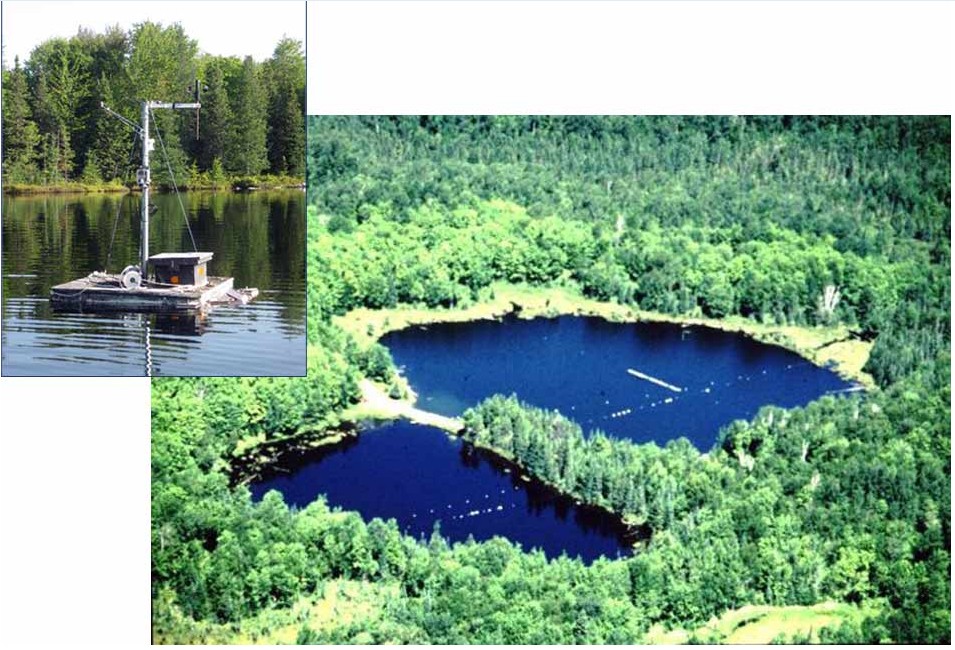| News & Events |
| Location:Home > News & Events > Science and Technology News |
| An Early Warning Sign for Ecosystem Collapse? |
The surprising strength and location of last month's Fukushima earthquake highlighted how poorly seismologists can predict when the ground is about to shake cataclysmically. Unfortunately, ecologists can't do much better at forecasting when an ecosystem is about to collapse or change dramatically. But now a team of ecologists has shown that it is possible to detect early distress signals in a lake that foretell a major disruption to its ecology. If researchers could identify similar signals in other ecosystems, they might one day predict, and perhaps even prevent, ecological meltdowns. The collapse of the Atlantic cod fishery in the early 1990s saw the most abundant fish in the North Atlantic disappear due to overfishing. Such events are becoming increasingly common as humans overfish, overgraze, and alter the climate. Connections between predators and prey—often described as a food web—become destabilized. This leaves ecosystems vulnerable to dramatic changes, such as when a single species, like certain algae, grows out of control and forms toxic blooms, like the red tides common off the coast of Florida and Mexico. In theory, learning to detect the precursors of environmental distress could help raise the alarm before any damage is irreversible. But while that's a nice idea on paper, no one has shown that it is possible in real ecosystems. Now, in the first study of its kind, researchers have pinpointed early warning signs for the disruption of a food web in a lake. By gradually introducing a large fish species—the largemouth bass—into a Wisconsin lake dominated by smaller algae-eating fish, a team of ecologists pushed the aquatic ecosystem to a critical limit where the largemouth bass came to dominate the food web. The researchers had carefully monitored the lake throughout the whole experiment, using a buoy that measures chemical and physical vital signs of the lake every 5 minutes. Combining these measurements with estimates of the populations of algae, zooplankton, and fish taken from regular net catches, the researchers report that they detected unusual oscillations in the amount of algae in the lake more than a year before the lake's food web shifted. They say these oscillations are likely due to changes in the feeding behavior of the smaller fish that result from the presence of the introduced predators. "All of a sudden the places that were once safe [for the zooplankton-eating fish] are dangerous," says study co-author and ecologist Stephen Carpenter of the University of Wisconsin, Madison. Because the smaller fish shifted to shallow waters where bass threaten them less, he explains, the algae that inhabit the more open waters of the lake were free of their predators and their populations fluctuate more. Carpenter and his colleagues report online today inScience that these fluctuations were a warning that the lake's food web is changing. They believe that the fluctuations in species abundance may herald an overall transformation of the lake ecosystem. "The reason that there is so much excitement about these early warning signals is that they are universal," says lake ecologist Marten Scheffer of Wageningen University in the Netherlands. Many systems have tipping points, he explains, even the climate system. He adds that isolating these signals from the ecosystem is not only useful for predicting environmental catastrophes, but they can also be used to determine which habitats are most likely to respond to conservation, and so allow ecologists to direct their efforts. The major challenge now for ecologists is isolating the appropriate signals in other ecosystem. Ecologist Robert Holt of the University of Florida in Gainesville explains that Carpenter and his team have worked on this lake system for many years, and thus they understand it intimately. Ecologists don't understand most other ecosystems nearly as well, he says, and so may find it harder to pin down the appropriate early warning signals in other systems.  |
| Appendix Download |
|
|